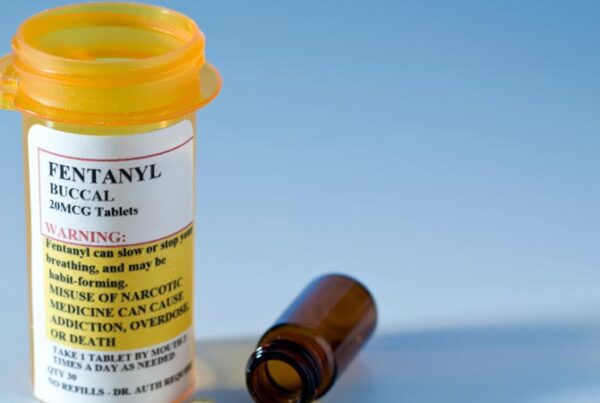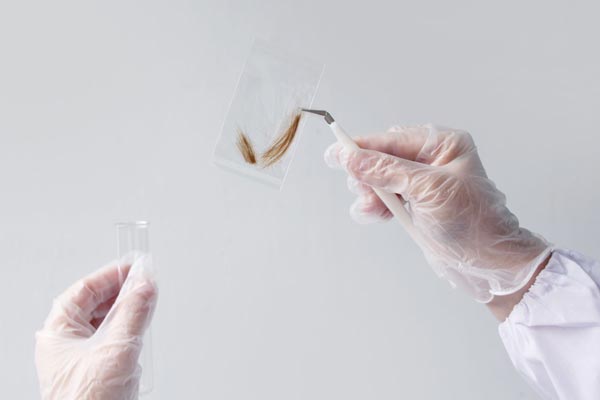Table of Contents
MDMA, also known as Molly or Ecstasy, is a recreational drug known for producing extreme euphoria in its users. However, it’s also an illegal substance, and using MDMA has significant drawbacks and risks, including the infamous MDMA comedown.
MDMA comedowns are more than simple withdrawals, according to most users. While a withdrawal from a substance is usually rough, an MDMA comedown can happen with as little as a single dose and seems to occur whether or not the user is addicted, though not everyone will have an MDMA comedown every time they use it.
If you’ve heard about MDMA comedowns and want to learn more, are considering using MDMA yourself and want to understand the risks, or think you might be addicted to MDMA and want help, you’re in the right place.
We’ll talk about what an MDMA comedown is, why it’s more likely to happen with street MDMA, how MDMA comedowns make withdrawal harder and addiction more likely, and what you can do if you’re dealing with MDMA substance use disorder or MDMA addiction.
What Is A MDMA Comedown?
An MDMA comedown is slightly different from withdrawal because it can happen even when your body isn’t chemically dependent on the drug.
Comedowns are relatively common, enough that many recreational users develop strategies for dealing with a comedown and anticipate them ahead of time.
But what is an MDMA comedown?
The most general description of an MDMA comedown is that it’s a period of low mood after using MDMA. That doesn’t sound too bad, but the depression and sadness that can happen during an MDMA comedown can be quite severe.
It’s generally thought that MDMA comedowns are partially related to the extreme concentrations of neurotransmitters in the brain during use, followed by lower-than-normal concentrations of those same neurotransmitters in the hours and days after MDMA leaves your system.
Specifically, MDMA increases the concentration of three neurotransmitters associated with feelings of happiness, contentedness, closeness, and even love and affection: Serotonin, Dopamine, and Norepinephrine.
One of the risks of MDMA use is that the drug can cause neurotransmitter toxicity in the brain by increasing the levels of those neurotransmitters well beyond safe levels.
After the drug leaves your system and neurotransmitter levels return to normal, your brain is still dealing with the damage and aftereffects of neurotoxicity. That can mean that your brain doesn’t make as much of those neurotransmitters as normal, reducing your mood and leading to feelings of depression.
In essence, this is thought to be the reason MDMA comedowns happen and why it’s important to acknowledge an MDMA comedown as being separate from normal withdrawal.
Over time, the effects of MDMA use can lead to long-lasting reductions in Serotonin and the other involved neurotransmitters, making stopping use much harder.
When and if the brain recovers normal levels of neurotransmitters isn’t well understood. We know that the effects of MDMA use can last for months after your last dose, even when you’re back to feeling more normal and have cleared both the comedown and withdrawal phases of recovery, but don’t know if your brain can recover at some point in the years after MDMA use.
Like many other illicit drugs used for recreational purposes, there haven’t been enough studies on the effects of MDMA use to fully understand the long-term consequences or exact mechanisms of damage or recovery.

What Withdrawal From MDMA Looks Like
It’s important to know what an MDMA comedown looks like, both so that you know what you’re dealing with and because understanding an MDMA comedown can help you identify if a loved one is using MDMA and dealing with a comedown.
Here are some side effects of MDMA comedowns and withdrawal, along with what MDMA comedowns and withdrawal can look like from the outside.
MDMA Comedowns And Mental Health
It’s normal for MDMA users to feel depressed, anxious, or both for at least 24 hours after the drug leaves their system.
Symptoms can be fairly severe, especially in users with other mental health disorders or who use MDMA regularly.
Long-term MDMA use is also associated with increased mental health symptoms and the development of mental health disorders due to decreasing levels of serotonin and other key neurotransmitters in the brain.
Fatigue During An MDMA Comedown
People experiencing an MDMA comedown are also relatively likely to experience extreme fatigue. You might not want to get out of bed or struggle to wake up to a normal alarm, for instance.
It’s common for people to complain or say they feel exhausted during an MDMA comedown, and they’re also likely to be more irritable than normal. Small setbacks can seem like a big deal to someone dealing with an MDMA comedown.
Physical Shakes And Weakness
When people are coming down from MDMA, they may have shakes or tremors. Some people claim they are just shivering, even in a warm room, but severe cases might not look like shivers at all.
In some cases, people in an MDMA comedown may not be able to hold objects normally and might choose straws or other assistive devices instead of drinking straight from a glass.
During an MDMA comedown, it might take longer to do physical activities, and you might not be able to lift or push objects you normally can. This effect usually goes away with time but can be significant in the first few hours of a comedown.
Jaw Clenching
Another common physical symptom of an MDMA comedown is that you might clench your jaw more than normal. Sometimes, people clench their jaws enough to cause pain or stress and damage their teeth.
To other people looking at you, jaw clenching is usually fairly obvious and may make it seem like you’re angry or more upset than you are. Combined with added irritability, someone experiencing an MDMA comedown might feel unapproachable.
Nightmares
One of the most common symptoms of an MDMA comedown is vivid and intense nightmares that you might or might not remember when you wake up.
Night terrors and night walking have also been reported.
These nightmares can make MDMA comedown fatigue worse by making it harder to get good rest when you sleep.

Need Addiction Treatment Help?: Here’s What You Can Do
MDMA comedown symptoms and MDMA withdrawal both get worse over time, with increasing side effects the more often you use and the more MDMA you take with each use.
One of the best ways to escape the cycle of MDMA use, leading to a comedown, leading to another use, is to stop entirely.
However, because MDMA comedowns are much more psychological than many other drugs, and you can feel desperate and depressed without the drug, it can be very difficult to stop on your own, especially if you don’t have a good support system or if other important people in your life also use MDMA.
The fact that MDMA can leave you vulnerable to mental health disorders makes stopping this drug particularly difficult for some people.
If you suspect you’re addicted to MDMA and want to stop, congratulations! You’ve already taken the first steps toward getting better.
There’s no shame in admitting that you have an addiction and need extra help and support to deal with that addiction.
Usually, the first step in seeking help with addiction is talking to your primary care provider. They’ll be able to recommend resources in your area and may be able to give you some additional tools to help until you get into a program.
If a doctor isn’t an option, or if that seems like a daunting first step, you can always do some research on your own. Consider looking for treatment centers specializing in substance use and mental health disorders. That will help ensure your treatment center is prepared to help with all parts of MDMA comedown and withdrawal.
Once you’ve researched programs, with or without a doctor’s help, take some time to decide which program looks best to you. Finding the right fit is important for your recovery.
After you’ve decided which programs are best for you, it’s time to reach out to their intake team directly. They’ll be able to help you with program screening, pre-approval, and even reaching out to insurance if they accept insurance at that program.
You should be prepared for a delay or waiting period while getting into treatment programs. Many programs operate at capacity all the time, and they don’t want to exceed normal capacity because that would risk you not getting the treatment you deserve.
In the meantime, you can reach out to individual therapy providers for more support.
It’s also a good idea to contact friends and family, let them know what you’re dealing with, and ask if any of them would be willing to help you. Having someone come over to ensure you’re staying hydrated and eating during a comedown can be a huge help.
Even something as small as check-in texts can help keep your mood up and make it easier to deal with an MDMA comedown and withdrawal symptoms.
Remember, you’re not alone, and things will get better. You’ve got your whole future ahead of you, and this is just one moment.
Sources:
- El-Mallakh RS, Abraham HD. MDMA (Ecstasy). Ann Clin Psychiatry. 2007;19(1):45-52. doi:10.1080/10401230601163592
- National Institute on Drug Abuse. What are MDMA’s effects on the brain? National Institute on Drug Abuse. Published September 2017. Accessed November 27, 2022. https://nida.nih.gov/publications/research-reports/mdma-ecstasy-abuse/what-are-mdmas-effects-on-brain
- Mustafa NS, Bakar NHA, Mohamad N, et al. MDMA and the Brain: A Short Review on the Role of Neurotransmitters in Neurotoxicity. Basic Clin Neurosci. 2020;11(4):381-388. doi:10.32598/bcn.9.10.485
The Heights Treatment Editorial Guidelines
There is a vast amount of misinformation online especially as it relates to health & wellness. We have made it our mission at The Heights Treatment to provide accurate, medically sound content that has been medically reviewed by a doctorate level clinician so that you can trust the information contained within our website.





